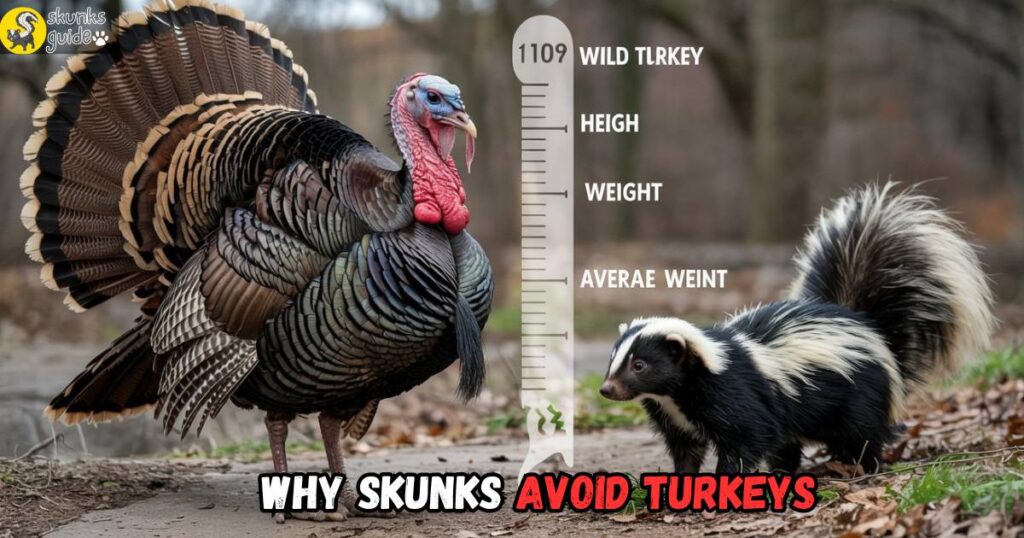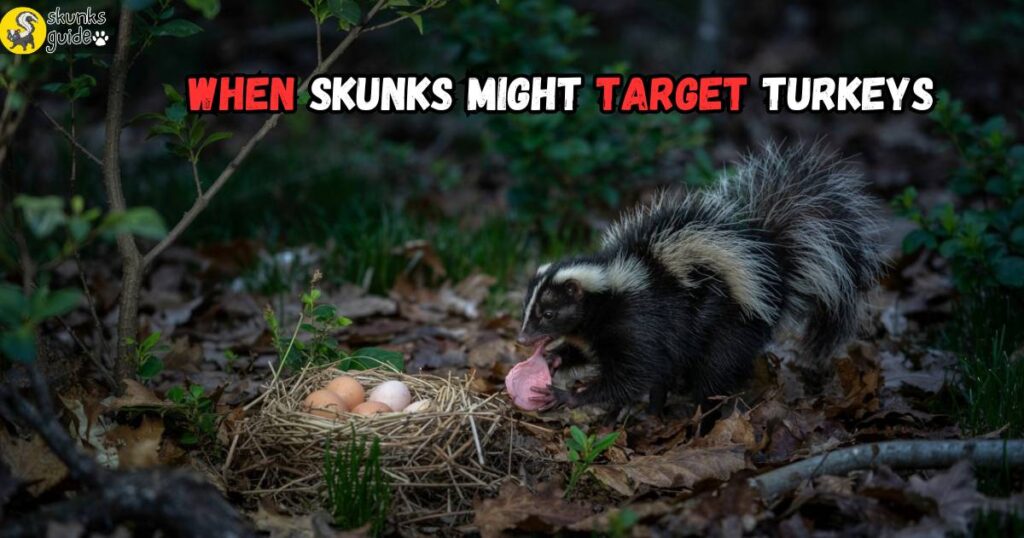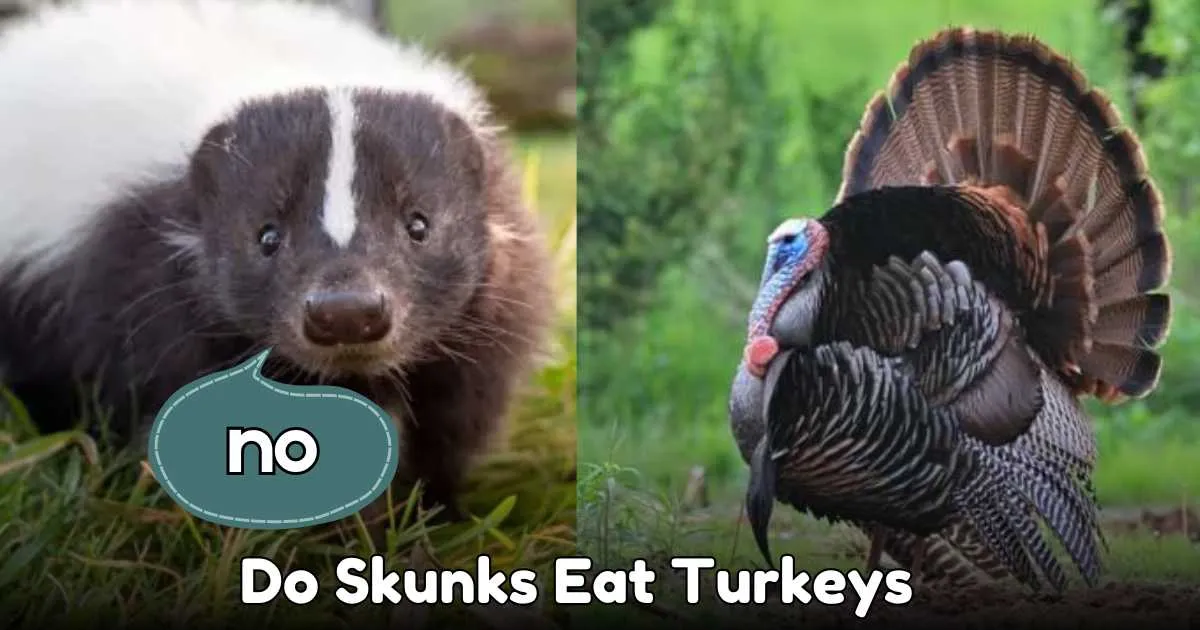Do Skunks Eat Turkeys?
Last updated on June 26th, 2025 at 01:19 am
No, skunks do not typically eat adult turkeys. Although they are omnivores with a diverse and opportunistic diet, adult turkeys are too large and well-defended to be considered common prey. However, skunks may occasionally eat turkey eggs or vulnerable hatchlings if the opportunity arises.
As someone who owns and cares for multiple skunks, I’ve had many curious readers ask whether skunks are a threat to backyard or wild turkeys. The answer lies in understanding the skunk’s behavior, preferred diet, and limitations.
The Skunk’Skunk Diet: What Do They Usually Eat?
Skunks adapt their diet based on season and availability, preferring food sources that are easy to catch or scavenge.
Primary foods include:
- Insects: Beetles, crickets, grasshoppers, grubs, and caterpillars
- Small mammals: Mice, voles, shrews
- Bird eggs: Especially from ground-nesting birds
- Fruits and plants: Berries, nuts, seeds, and grasses
- Carrion: Dead animals they may come across
- Pet food/trash: In suburban areas, skunks may forage from garbage or outdoor bowls
👉 These items offer low risk and high reward, which is why adult turkeys—being large and defensive—aren’t typically part of the menu.
Skunks vs. Turkeys: Rare Interactions

Why Skunks Avoid Turkeys
- Size Matters: Adult turkeys are much larger than typical skunk prey.
- Defensive Abilities: Turkeys have strong legs and sharp beaks to fend off attackers.
- Activity Mismatch: Turkeys are diurnal (active during the day), while skunks are nocturnal.
When Skunks Might Target Turkeys
While adult turkeys are safe, certain situations can attract skunks to turkey areas:
- Egg Raiding: Skunks may sniff out ground nests and eat turkey eggs.
- Poults (young turkeys): Very young hatchlings may be vulnerable if left unattended.
- Food Scarcity: In droughts or harsh winters, skunks may take risks and expand their diet to include more unusual items, like nesting birds.
Protecting Turkeys from Skunks

If you raise domestic turkeys or protect wild populations, follow these steps to deter skunks:
- 🔐 Secure nesting areas
- Use elevated nests or protective netting around ground nests.
- Reinforce outdoor coops or pens with buried fencing.
- 🚫 Remove attractants
- Keep pet food, trash, or compost sealed and away from the area.
- Clean up fallen fruit or feed scraps that could draw skunks in.
- 💡 Use deterrents
- Install motion-activated lights, sprinklers, or noisemakers to scare off nocturnal animals.
- Natural repellents like citrus peels or ammonia-soaked rags may help.
The Skunk’s Role in the Ecosystem
Even if they occasionally eat bird eggs, skunks are beneficial to the environment. Their presence supports:
- Pest control – Skunks consume large numbers of garden and crop pests.
- Rodent population management – By hunting small mammals, skunks reduce damage caused by burrowing rodents.
- Scavenging – They help recycle nutrients by consuming carrion.
- Soil health – Their digging behavior aerates the ground, promoting healthy ecosystems.
👉 Skunks aren’t just survivors—they’re natural helpers.
Frequently Asked Questions
No, skunks are unlikely to attack or kill adult turkeys due to their size and defensive abilities.
Skunks are primarily drawn to turkey nests for eggs or young poults, not adult turkeys.
Secure nesting areas, eliminate attractants, and use deterrents like lights or sprinklers to keep skunks away.
Conclusion
While skunks are highly adaptable and opportunistic feeders, they rarely pose a threat to adult turkeys. Their role in controlling pests and scavenging contributes to the health of ecosystems. By understanding the dynamics between skunks and turkeys, we can take measures to protect both species and maintain ecological balance.

